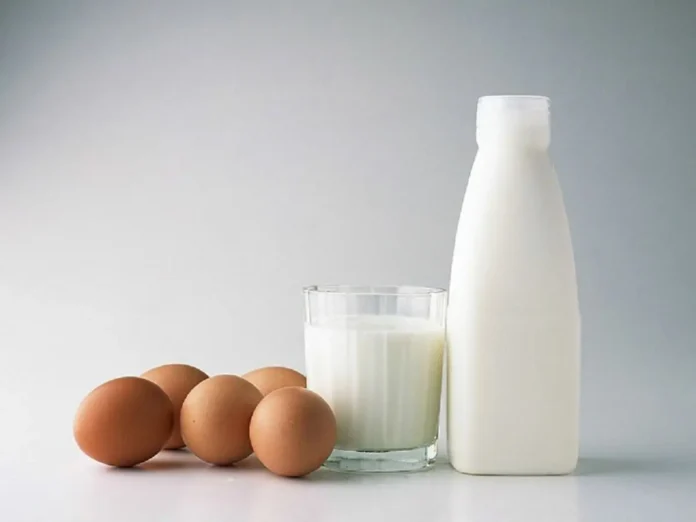Egg and milk are two commonly used food ingredients that serve different purposes in cooking and baking. Let’s compare them based on their nutritional content and common uses:
- Nutritional Content:
- Eggs: Eggs are a good source of high-quality protein, containing all nine essential amino acids. They also provide various vitamins (B2, B12, A, D) and minerals (selenium, phosphorus) while being relatively low in carbohydrates. Eggs are particularly rich in choline, which is essential for brain health.
- Milk: Milk is a good source of calcium, vitamin D, and vitamin B12. It also provides protein, carbohydrates (lactose), fats, and other essential vitamins and minerals, making it a well-rounded and nutritious food.
- Common Uses:
- Eggs: Eggs are widely used in cooking and baking for their binding properties and ability to add structure to dishes. They are used to make omelets, scrambled eggs, quiches, and are crucial in baking cakes, cookies, and other baked goods.
- Milk: Milk is a versatile ingredient used in a variety of dishes. It is a common beverage, consumed in its raw form or as part of beverages like coffee, tea, and smoothies. It is also used in cooking for soups, sauces, custards, and desserts like puddings.
- Dietary Restrictions:
- Eggs: Some individuals may have egg allergies or choose to avoid eggs due to dietary restrictions, making it unsuitable for certain recipes or specific diets.
- Milk: Milk may not be suitable for people who are lactose intolerant or have dairy allergies. However, there are various non-dairy milk alternatives available, such as almond milk, soy milk, coconut milk, and oat milk, which can be used as substitutes in recipes.
- Substitutability:
- Eggs: When baking, eggs can often be substituted with alternatives like applesauce, mashed bananas, yogurt, or commercial egg replacers, depending on the recipe and desired outcome.
- Milk: In cooking and baking, milk can be replaced with non-dairy milk alternatives mentioned above or water in some cases, although it may impact the flavor and texture of the final product.
Ultimately, the choice between eggs and milk in cooking depends on the recipe and the dietary preferences and restrictions of the individuals consuming the food. Both ingredients have their unique nutritional benefits and culinary applications.



